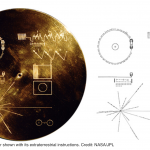The twine task was a fun and creative experience for me. I have used multiple tools to create these types of story experiences in the past, so getting over the initial hump of my past knowledge and creating new knowledge by using a new tool was engaging. It forced me to learn a tool that is somewhat familiar but at the same time different. Maybe a more relatable example for others would be switching between Teams and Zoom. Both options offer the same service but they have distinct features, which requires you to learn both.
For me, this relates back to the evolution of writing, from handwriting to computer based tools. We still use the same letters, numbers, and grammar to communicate our thoughts and ideas, with the difference being that it is through distinct means. In our reading Bolter (2001), we learned that regardless of the method we choose for communication, there are different levels of cognition for each task with some overlap. As us users continue to move through textual spaces on the web, we will learn how to adapt, the same way we have evolved to live in a world surrounded up hypertext.
Bolter, Jay David. (2001). Writing space: computers, hypertext, and the remediation of print. New York, NY: Routledge.





grace reid
November 22, 2021 — 7:57 pm
Kirn,
I loved your Twine and getting an opportunity to learn about you and your journey from lawyer to IT, and how you’ve come to own your name.
I agree with the idea that prior knowledge construction becomes part of who we are and how we navigate the world. We see and understand the world through the various lenses that’ve been constructed over time.
I agree with the statement suggesting that different levels of cognition are required for different modes of communication. I predict that the mode of text that requires the least amount of cognition for an individual is the one that they used socially to communicate with friends in adolescence when the brain is working hard to develop neural pathways. Another layer to this stage is that everything is experienced with heightened emotion at this time, making the preferred modes of communication at the time of adolescence the ones that come the easiest in adulthood. Of course, this is just my theory and I have nothing to prove it.
I would say that as a teen, I communicated with lengthy hand written notes and spending hours on the phone. As an adult, I still prefer these modes of communication with those I’m closest too. My three teen daughters, however, almost always text and those come with their own issues of ‘decoding’ and translating. I never hear them on the phone and if they do need to speak on the phone to someone, it doesn’t come across as ‘easy’ or fluent.
I argue that in a world with growing text and technologies comes a wide continuum of literacies that need to be learned and explored. The rules for each are different and some will become more fluid than others.
Thanks for provoking my thinking!
Kirn Bhela
November 25, 2021 — 10:25 pm
Hi Grace!
Thank you for the thoughtful comment/reflection!
I agree that the evolution of text and technologies requires us to explore new forms of communication and expression. At the end of the day, most research on humans and other animals suggest that much of our behaviour revolves around our social needs, which ultimately boils down to communication.
I recently watched an “Explained” episode on Netflix about teenagers and brainwashing. Although the two episodes were not directly related to each other, the overlap in research findings was overwhelming. According to the research they present, both abnormal teenage behaviour (e.g., risky tricks) and “brainwashed” individuals (e.g., anti-vaccine activists), the driving factor seems to be the people in their group. For teenagers, they want to impress their friends and potential romantic partners. Similarly, people who are more susceptible to being “brainwashed” tend to not have a “group” that they feel they belong to, making “welcoming” extremist groups more appealing. In both situations, individuals are simply looking to fit in and belong with their peers. We all want to feel wanted and needed, and we all need some form of social interaction.
This is why it is so important to understand each other “languages”, whether that be communication via memes or letters. We only truly feel understood when our loved ones can communicate with us in ways we can comprehend easily.
Thank YOU for provoking my thinking too!